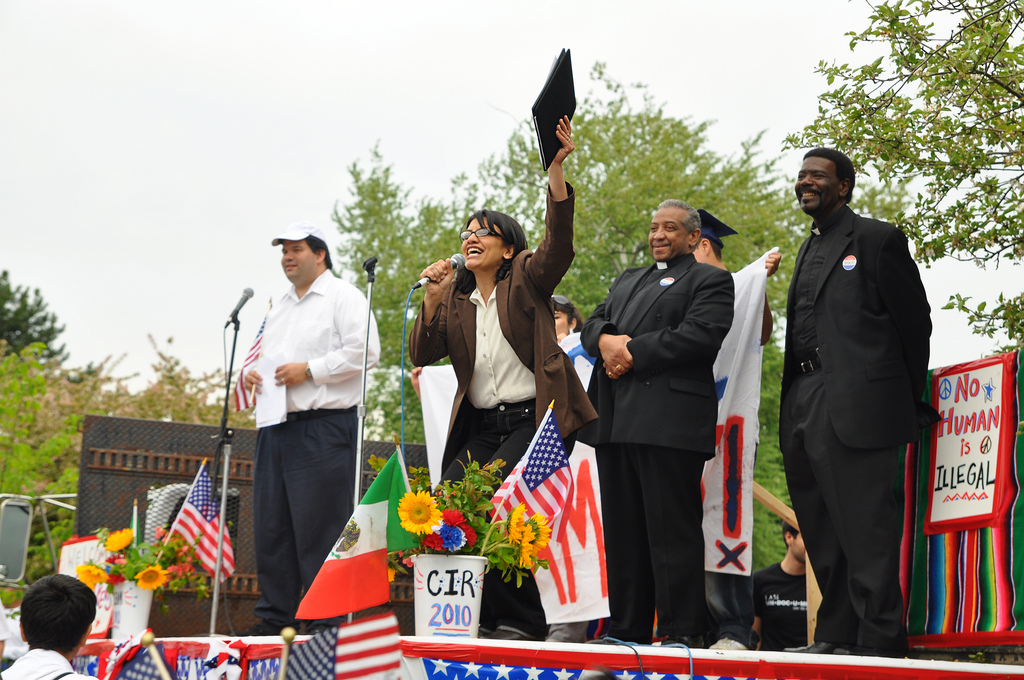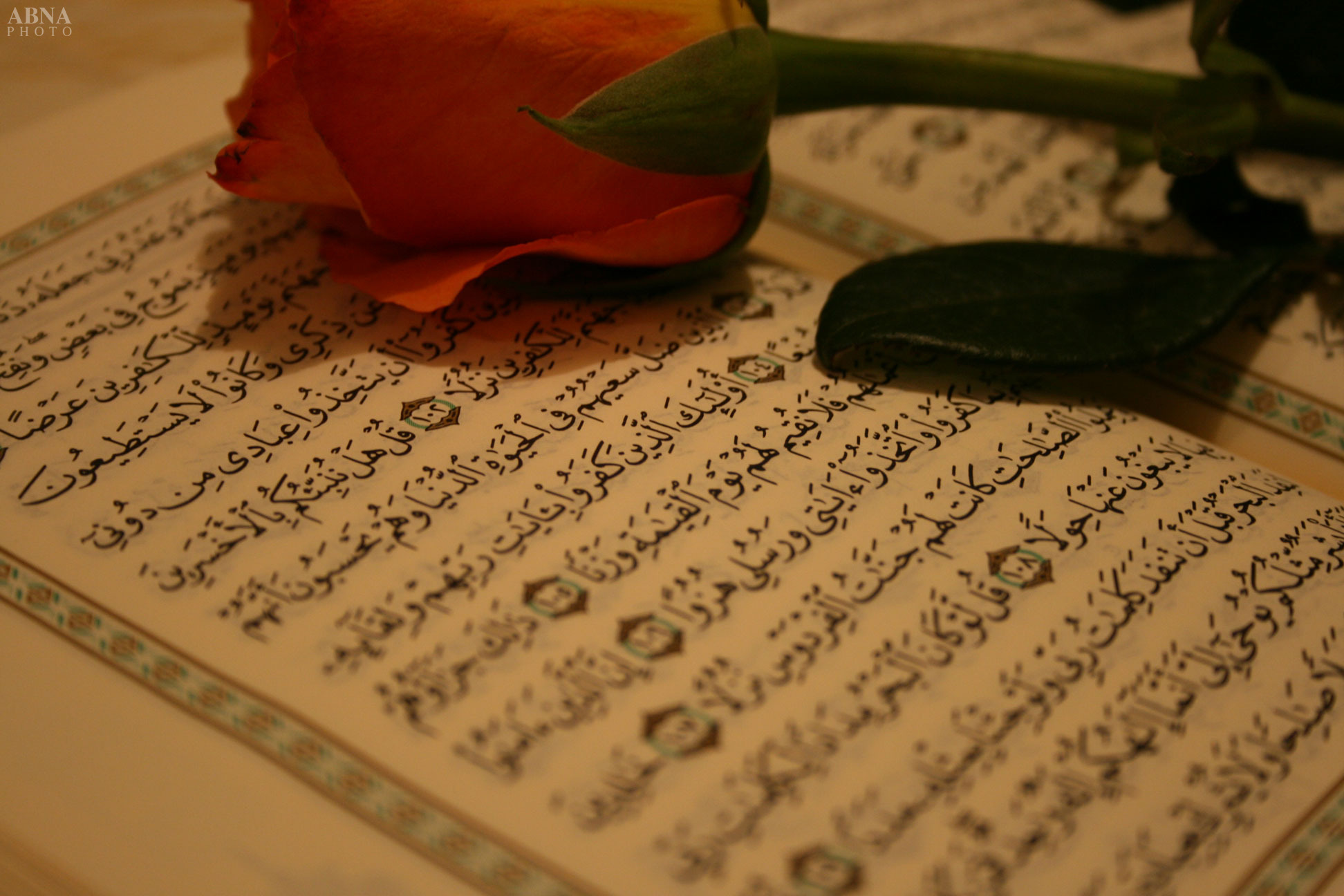There is no one way to define who a Muslim woman is and what she can achieve while holding on to her identity. Much can be learned from talking to Muslim women and listening to their stories.
There are millions of Muslim women who lead thriving professional careers along with successful family lives. These women, like many others, have their own struggles when it comes to matters pertaining to their faith. Applying their religious values to their families and inside their homes might be somewhat less challenging than carrying their religious teachings to the workplace. To understand and explore the challenges these women face, through a deeper look at their lives and careers, a highly accomplished panel of female Muslim lawyers met at the University of Delaware on March 24, 2010. The panel entitled “Muslim Women Lawyers” brought three prominent Muslim women to discuss the complexities of their personal-public lives and how they constructed their identity as a Muslim woman. What kind of gender issues do they face? How does Islam impact their work, if at all? And how do they cope with and shape how the rest of the world perceives Muslim women?
Experiences clearly vary depending on the nature of the jobs. For some women, the influence of Islam is not so apparent yet for others, it is an integral part of what they do for a living. Mrs. Hina Haq is deputy attorney general of the Department of Justice in the state of Delaware. As a lawyer, she is responsible for implementing Delaware law regardless of her personal religious values. For Mrs. Asma Uddin, editor-in-chief of Altmuslimah.com, however, religion plays a bigger part in her professional life. As an attorney for the Becket Fund for Religious Liberty, her professional responsibility is to negotiate a public space for religious freedom, and as editor of AltMuslimah.com, she is negotiating a personal space for religious and spiritual exploration.
The presence of Islam is more apparent on the personal level and can coincide with issues of visibility and invisibility. Whether to wear the hijab or not is an example of the struggle between wanting to be identified as a Muslim without being limited by a constricted identity and image. Asma, for example, wore the hijab throughout college because it underscored her Muslim identity and showcased the woman she wanted to be. Later, however, she discarded it. It was no more in agreement with the woman she had become. For Muslim women who undergo the process of thinking and re-thinking whether to keep the hijab or to remove it, the dilemma takes a personal spin. Indeed, each Muslim woman goes through her own unique journey, and it is her journey alone that explains her decision.
Are Muslim women who choose to wear hijab more visible and subsequently, more prone to discrimination? Some echo the belief that a hijabi woman can actually undergo positive discrimination, especially if she is successful. By breaking the stereotype of being invisible, passive, and confined to the home, a successful hijabi woman can prove to others that she can be as educated and ambitious as any other woman. Hina, perhaps one of the most successful Muslim women in the state of Delaware, never faced prejudice or discrimination because of her religion. She was able to achieve all her dreams yet she correctly acknowledges that the situation might be different for hijabi women. Hijab is an experience that no one can interpret, explain, or define except the Muslim woman who undertakes it.
As they spoke about their work, the panelists proved that the discrimination, abuse, and domestic violence their clients face encompass all women regardless of what religion they belong to. If one scratches the surface, it will be clear that women of all religious and ethnic backgrounds face similar problems and possess similar aspirations! Perhaps this is why members of the audience at the talk, whether Muslim, Christian, or Jewish, were able to relate to stories the panelists shared. Mrs. Rafia Zakaria, attorney and board member of Amnesty International USA, is researching the interactions of Muslim women with Western legal systems. During her research in the United States and Canada, she found that there are several identity related complexities associated with Muslims prosecuted under Western legal system. Indeed, Muslim women face a hard choice. They must choose between resolving cases under Sharia law or under the legal system in place in the Western country. This poses a pressing identity conflict: Am I a Muslim first or American/Canadian first?
In an effort to solve this problem in an innovative way, Rafia tries to introduce Sharia law into courtroom proceedings whenever it is favorable for her client. For example, when a Muslim couple files for divorce in an American court, Rafia tries to bring in prenuptial agreements signed under Sharia law to try and give her client more support. This gives Canadian and American Muslims the choice of being both Muslim and citizens without having to favor one identity over the other. Also, this renders Sharia law more hybrid as new elements of both legal systems are enmeshed. In addition, when Hina spoke of the many domestic violence cases she dealt with in Delaware and the hesitance and fear that women of all religions face when reporting a case, it became clear that there were more similarities than differences to be taken from women’s experiences.
The most obvious lesson that these women conveyed was how successful, inspiring, and accomplished Muslim women in the United States can be. They demonstrate that believing and practicing Muslim women are not all marginalized or oppressed as some media outlets portray them to be. Their personal journeys are a commentary on how Muslim women in America are appropriating Islam and a meaningful and purposeful Muslim identity. They also show that it is acceptable and possible to question and explore one’s religion without losing faith.
There is no one way to define who a Muslim woman is and what she can achieve while holding on to her identity. Much can be learned from talking to Muslim women and listening to their stories. The panel discussion went a long way towards facilitating this kind of dialogue and made inter-civilizational understanding more personal, more intimate, and more inspiring. Fittingly, it was the product of a partnership between the Islamic Studies Program of Delaware and Circle of Hands, a philanthropic organization in Delaware started and run by another successful Muslim woman, Dr. Sheerin Javed.
Dima Qassim is a graduate student in the School of Urban Affairs and Public Policy at the University of Delaware. Sara Chehab is a doctoral candidate in Political Science and International Relations at the University of Delaware. The panel mentioned in the essay was held on March 24, 2010 as part of Dr. Muqtedar Khan’s class “Islam in Global Affairs” at the University of Delaware.




Great article! You two provided a wonderful representation of the many successes that muslim women have had in public life – notably in such lofty professions such as lawyers! Keep up the good work.
Dima, this is a great blog post! nice profile of two professional Muslimahs, especially our very own Asma.